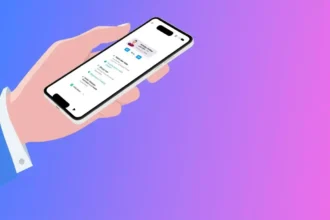Blockchain is expanding. It is setting feet in multiple industries and helping them to evolve. The healthcare sector, which has immense data, is not left untouched. Many healthcare service providers are considering adopting blockchain-based solutions this year. If you’re curious about how blockchain influences the healthcare sector, it’s important to know that blockchain is playing an important role in improving the industry. Here’s how.
1. Secured and Easy access to Data
The basic features of blockchain technology are that it is secure and consistent. When data is in blockchain, we can be assured about privacy and integrity too. Medical data, when kept in blockchain, can be accessed through the internet from anywhere in the world.
At the same time, it cannot be accessed at all by people who are not authorized to access the data. So, deploying blockchains for storing medical data will keep that data safe, easily accessible and encrypted.
2. It Can Reduce Data Inconsistency
Typical paper files are not the right way to maintain medical data, but this is how our healthcare industry has been maintaining data for decades. It is not the right way because it increases the chances of redundant or duplicated data with limited access.
Let’s say your blood sugar was checked in a hospital. After eight months, you got it checked again, but in a different hospital. This diagnosis found a noticeable increase in blood sugar levels. Now, you reached out to first hospital for treatment and they still have the old records. Now you either have to present the new data or get the blood sugar diagnosed again. By any chance, if they used the data which is already available, the treatment will not be as efficient as it could have been.
Outdated data is a big problem, which can be totally removed by using blockchain in the healthcare industry. With your medical reports available online shared between multiple medical service providers and regulated by government norms of medical data sharing, data inconsistency will start to vanish from the medical world.
3. No missed information
We, as humans, are lazy at maintaining the documents. The medical reports in one’s home could go missing any time. Result? You will have to repay for the whole process again and acquire new reports if you ever need that information again. This results in the loss of not only money, but time too. With blockchain, data never goes missing.
4. Reduced Time and Efforts
It is possible to know how to keep data well-maintained, available on authenticated request, consistent, portable, and analyzable for medical service providers. Due to this, unwanted delays and errors can be reduced. Increasing information and its availability will definitely be a key factor in consider how to help doctors provide better solutions to patients.
5. Better Health Data Supply Chain Management
Blockchain allows transparent data monitoring by all participating parties. Also, its secure and role-based access infrastructure is praised by everyone. Decentralizing the data, blockchain can form the basis of excellent medical supply chain management systems. This practice will reduce the cost and time involved in making medical data available for diagnosis. Less involvement of humans in the process will reduce the chances of human errr.
6. Playing a Vital Role in Improving Healthcare Services
The healthcare industry is all about providing error-free medical solutions to people and helping everyone to stay healthy. The correctness of data, put in blockchains, will increase the probability of correct diagnosis and treatment.
Reducing the time taken in the analysis of medical reports it will help eliminate delays too. Different medical service providers, healthcare manufacturers, and stakeholders will be available to exchange data without putting data security on the stake. All in all, it could definitely improve the quality of medical services and healthcare products.
7. Changing Traditional Models for Healthcare Sector
Blockchain is potent enough to lay the basis of an interoperable and collaborative healthcare model, which could be the future version of the conventional medical record-keeping system. As IoT devices, new medical technologies, and different methods of collecting medical data are arriving each day, it is the need of the hour for the medical sector to have a better digital infrastructure.
Conclusion
Blockchain technology is influencing the healthcare sector and has the capability to change it completely. It can change the way we exchange medical data at present. That’s why healthcare pioneers and tech giants are looking forward to adopting this powerful blockchain technology, secure data technology, and mobile app development technology and are deploying it already.








